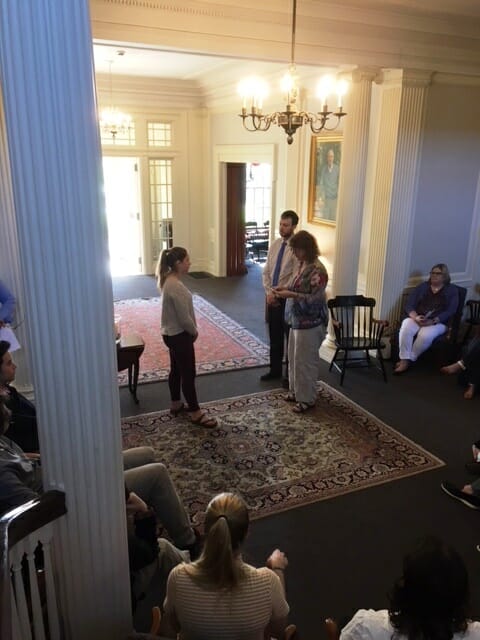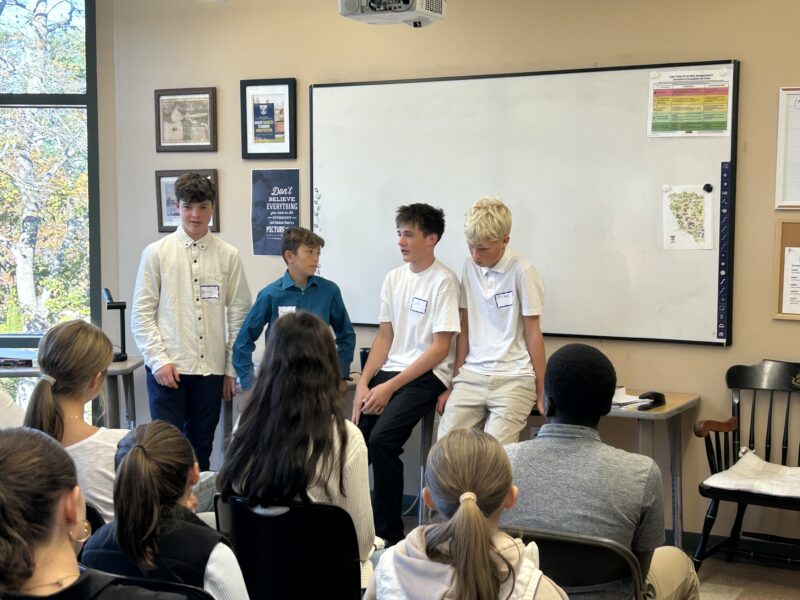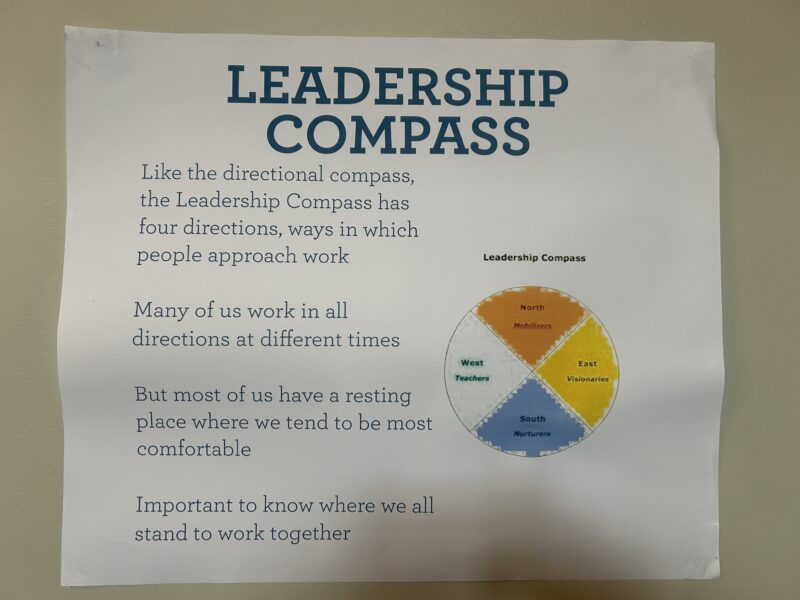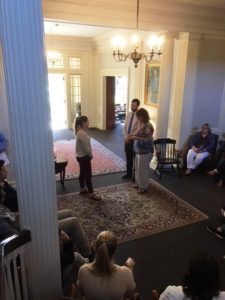
We have arrived at a point where the Graduation Guide Ceremony is a “thing.”
Before explaining, a quick history lesson on the evolution of the Hyde graduation…
For the first ten years, Hyde graduates did not speak. Instead, each senior chose a faculty member to write a blurb summarizing his or her time at Hyde. (Commonly heard: “So, who’d you pick to do your blurb?”) When his (and it was exclusively “his” for the first 5 years) or her name was called, the graduate strode to the front of the Sunken Garden and all assembled would hear the head of school read a blurb that went something like this:
Four years ago, Malcolm came to summer school a defeated young man. He lacked self-confidence and even self-respect. He was convinced that leadership and excellence were inborn qualities and he wondered whether he might not have been born with the short end of the stick. He has since learned that leadership and excellence are developed qualities and he has developed them. In sports, he became the leading force in Hyde Lacrosse spirit and was even coach of the JV basketball team. In school government, Mal has been recognized all year as one of the key leadership people in the Senior Class – a significant achievement.
Four years ago we all questioned whether it would be possible for a Headmaster’s son to survive at Hyde in Hyde School. Certainly it has not been easy, but Mal rose above the nickname “Little Joe” to survive and flourish.
Malcolm stands as a key figure in the school when considering Hyde philosophy. He has taken on a great deal of responsibility for the direction in which the school has gone and will go. Malcolm has grasped the Hyde concept and has rigorously applied it to himself and others. Malcolm graduates today with the Hyde Award and we are proud to have him represent us at Bowdoin College next year.
(Note: Any peers from my Hyde student days who feel compelled to give me any grief about the above — and that includes taunts of “Little Joe” — can expect to see their own blurb posted prominently on this blog and plastered across a vast array of social media outlets!)
Anyway…
The class of 1976 ended this tradition with the decision to have each graduate deliver a speech with his or her parents standing in the audience. While two or three minutes was the recommended length for each speech, there was nothing to stop the long-winded. Before long, our recommended time length evolved to an expectation of two minutes. (This year, we’re experimenting with 90 seconds.)
In the mid-90s, we formally brought parents under the tent by establishing the tradition of the Senior Parent Breakfast as a way to honor their efforts with our Biggest Job family program. Funny, but this has effectively resurrected the “blurb” concept as a statement is read about each parent, only this time it is written by their children. It has become one of the best things we do at Hyde.
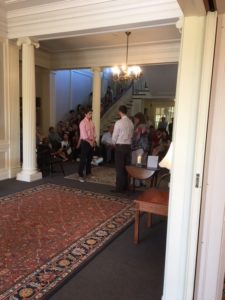
Now comes the Guide Ceremony. The process begins at the beginning of Senior Evals when each senior is paired with one or two faculty members who help guide him or her through the entire Senior Evals process from Session #1 on through the graduation speech. The Guide Ceremony occurs a few days before graduation day. Seniors and faculty convene under The Chandelier in the Mansion. Each name is called and the senior and his or her respective guides come to the front of the room. At that point, the Guide publicly reads a few questions for each senior to consider for the future. The general idea is to offer questions covering three topics: Strengths, Challenges, and Vision. Once read, the questions are handed to the senior as a keepsake.
Let me close with some actual examples of questions offered from the 2018 Guide Ceremony held this week. Sometimes they are short and sweet:
- Can you accept your parents for who they are?
2. What role is anger playing in your life now?
3. Are you living your life in a way that makes you proud?
Sometimes they’re a bit more detailed and nuanced:
- You spoke recently about freezing under the pressure of making choices, expressing regret and sadness about past experiences. How does your fear of failure limit you? How can you embrace risk?
2. You maintain a quiet, positive demeanor. How has growing up in a family of big personalities affected and molded your deepest habits and feelings?
3. When you speak, other’s listen. How will you leverage your authenticity and concern to test your leadership potential?
They can be detailed, and pointed:
- What is going to help you do the things in life you don’t want to do?
2. Arrogance can sometimes get in your way. Moving forward how will you be able to put that part of you aside and see other perspectives.
3. Two years ago you never thought you would be able to accomplish what you have today. Now that you know you can accomplish your goals. What goals are you setting for yourself in the future? Are those new goals challenging enough?
4. Much of your time at Hyde you have tried to set up a safe environment for yourself when it comes to your own sobriety. Without the scaffolding of Hyde how will you build your own scaffolding and what will that look like?
They can also be just plain pointed:
- Next year when you’re sitting in the locker room and your teammates are targeting freshman girls, will you remain silent or will you speak up?
2. You’ve learned the characteristics of being a student athlete at Hyde, what role will the student play for you next year?
They can be timeless, worthy of consideration by anyone:
- What ethics and standards will you commit to live by no matter what others around you choose to do?
2. What are the tools you need to develop and attitudes you need to suspend to get rid of the guy who can get overly reactive when challenged? - How are you influencing others for better? How are you influencing others for the worse?
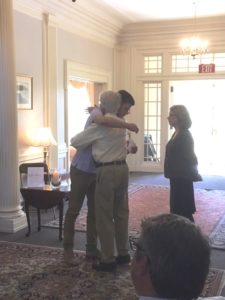
They can be uplifting:
- You have overcome huge physical challenges. Your resilience is inspiring. In what way will you use your grit to inspire others in your life?
2. You are a leader in your family. How will you continue to be a positive influence in your sister’s life?
3. You turned around your attitude with determination and positive spirit. How will you commit to healthy choices when you are in college and beyond?
They can look to the future:
1. Your leadership has at times been based on charism and personality. How can it be based on truth and will you trust where that will lead you?
2. What is your next step of humility? How does this connect with the men/father figures in your life?
3. When you are retired and living that life on the beach, how will you have left the world a better place? What will be your legacy?
Legacy… That’s a good place to leave it. The Guide Ceremony has arrived. What’s next?
Onward, Malcolm
